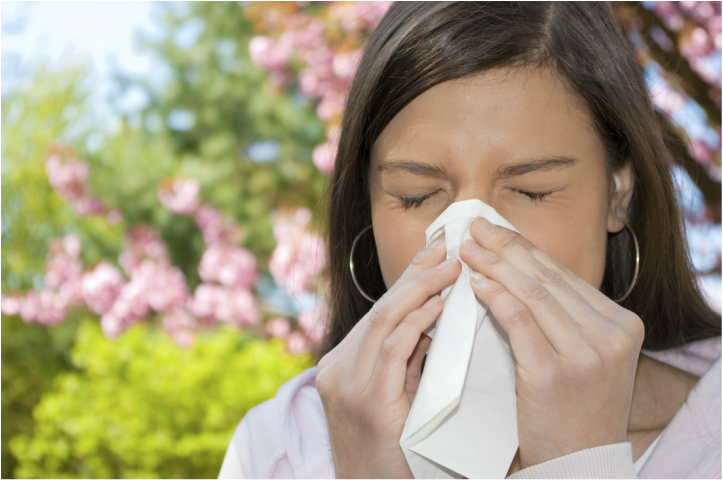
Recently, as I was curled up with a cup of tea and a book riding out a spring blizzard, the concept of wind was brought (forcefully) to mind. When you visit your acupuncturist, for various aliments she may mention you have a wind condition, which may leave you scratching your head. The thing to keep in mind about diagnosis in Traditional Chinese Medicine (TCM) is that the language we use is descriptive.
In the case of wind, first we need to look wind in our environment. Wind is sudden, moving, causing movement and we tend to feel, hear or see it higher on our bodies or environment. Wind brings change. That is a pretty good basic description right? So how do we apply that to a person?
Anything that is sudden, moving, causes movement, changes with these effects mostly in the upper body usually have a component of wind. This can include, colds, flu, allergies, some types of pain, itching and tremors or convulsions.
Spring is the season of wind. For many, this is physically the windiest season. It is also the "windiest" season from a TCM perspective. It is a season of changes. Thing are growing, the weather is warming, but, (at least where I live) still making quick, drastic changes. Just a few days ago I was living in a blizzard, today its sunny and in the 60's. There is no physical wind, but this is still "windy" weather just the same!
So how does this affect the average Joe on the street? Well, this time of year is when we start seeing allergies flare up. Catching a cold is still common. Folks who suffer from migraines or cluster headaches frequently see these conditions get worse during this time of year, and skin conditions such as hives and eczema can be more common.
The physical winds of spring have shown to be connected to mood. There are explanations for this in TCM as well, but what I find fascinating is the evidence that western science is finding to support the mood changes people feel.
Pause for a science break: Ion are molecules that have either a positive or negative charge. They gain this charge by either gaining or loosing an ion. In nature, wind tends to cause air molecules to pick up an ion, leading to "positively" charged molecules. Positive in this sense isn't positive. We can feel restless, agitated, irritated or depressed.
On the other hand, negative ions have a positive effect. They increase the flow of oxygen to the brain, leading to a greater feeling of alertness, increases serotonin levels, and may protect against germs in the air.
So where, in nature do we find these good guys? Water is a big one, especially moving water, but even a more humid environment helps. The air in the mountains or at the beach is said to contain tens of thousands, while the air in the typical home or office can be a low as zero.
The point of all this is that wind has an impact on our physical and mental well being; and spring, the season of wind, can be the toughest time of the year. There are things you can do to help!
1. See your acupuncturist! Get a seasonal tune-up, particularly if you have something that flares-up or gets worse this time of year.
2. If you suffer from seasonal allergies, spring is a great time to try using natural, raw, local honey. If the bees have been picking up pollen in your area, then you can get small doses of your trigger in the honey and it may help your body not over react.
3. Use a netti pot or saline. This will help keep your nasal passage clear of all the gunk in the air.
4. If you live in a dry climate, a humidifier through the winter can help.
5. You can try a salt lamp - they are said to increase the amount of negative ions.
6. You can also look at an ionizer, but buyer be ware! There is no standard for these machines and they can be expensive.
On the bright side, something you probably do every day for free can help. Take a shower! Its moving water, which generates those negative ions, it cleans the air and just feels darn good!
 RSS Feed
RSS Feed